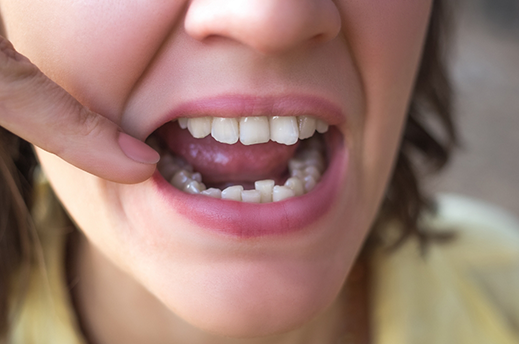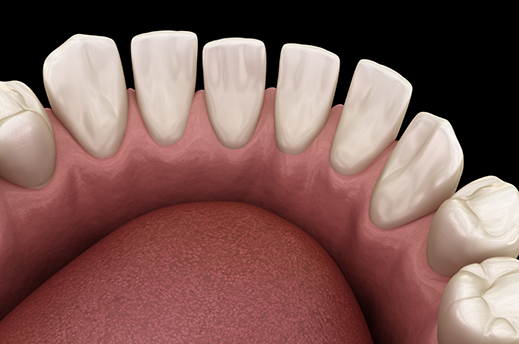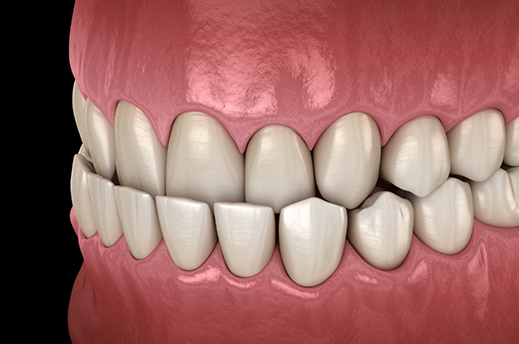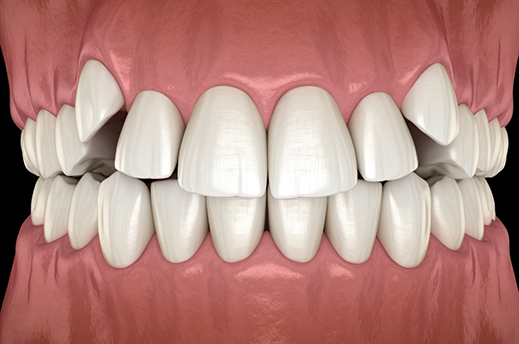Why See an Orthodontist? McMurray & Bethel Park
Know When to Seek Care
Here at Smiles by Palmer in Bethel Park and McMurray, our team wants everyone to enjoy the benefits of a well-aligned smile. However, we cannot help people who choose not to come to us! How can you know whether you should visit an orthodontist? Your general dentist might let you know. Or, you may choose to seek a consultation on your own. Either way, we are ready to evaluate your teeth and jaws and let you know about your treatment options. Here are some examples of orthodontic issues that often require treatment:
Overcrowding

Crowded, overlapping teeth can cause a number of problems. For example, they can be difficult to keep clean. Food particles and bacteria may accumulate in the tight spaces between your teeth, and even if you make diligent efforts to brush and floss regularly, you could still end up with spots of decay. There is also the risk that bacteria will invade your gumline and lead to periodontal disease. You are also more likely to experience bad breath than people whose teeth are well-aligned.
Our team can provide braces or other treatments that shift your teeth so they are easier to clean and feel more comfortable in your mouth.
Gapped Teeth

Big gaps between the teeth may seem cute and quirky, and it is true that they do not always require orthodontic treatment. However, if your gums are often swollen or in pain because of gaps between your teeth, or if you feel self-conscious about the way your smile looks, you should certainly come to see us. We can often move the teeth so they are closer together and can function optimally.
Bite Problems

Bite problems, also known as malocclusions, are quite common. They can have a negative impact on your facial appearance, make it difficult for you to eat comfortably, and increase your risk of TMJ disorder (TMD). We often treat patients who suffer from the following bite problems:
- Overbite: When the front teeth protrude too far beyond the bottom teeth.
- Underbite: When the bottom teeth protrude in front of the top teeth.
- Crossbite: When some of the bottom teeth rest in front of the top teeth.
- Open bite: When the front teeth do not touch each other, even though the back teeth are touching.
Braces, often along with special accessories, can shift the teeth and train the upper and lower jaws to rest in the correct positions.
Impacted Canines

Your canines, also called your incisors, are the pointy teeth near the front of your mouth. If they do not fully descend from the gumline, that can affect the way your smile looks. Impacted canines can also increase your risk of gum disease and other problems. In many cases, we are able to use orthodontic treatment to encourage the canine teeth to move into their proper positions, thereby allowing our patients to enjoy improved oral health and more confident smiles.
